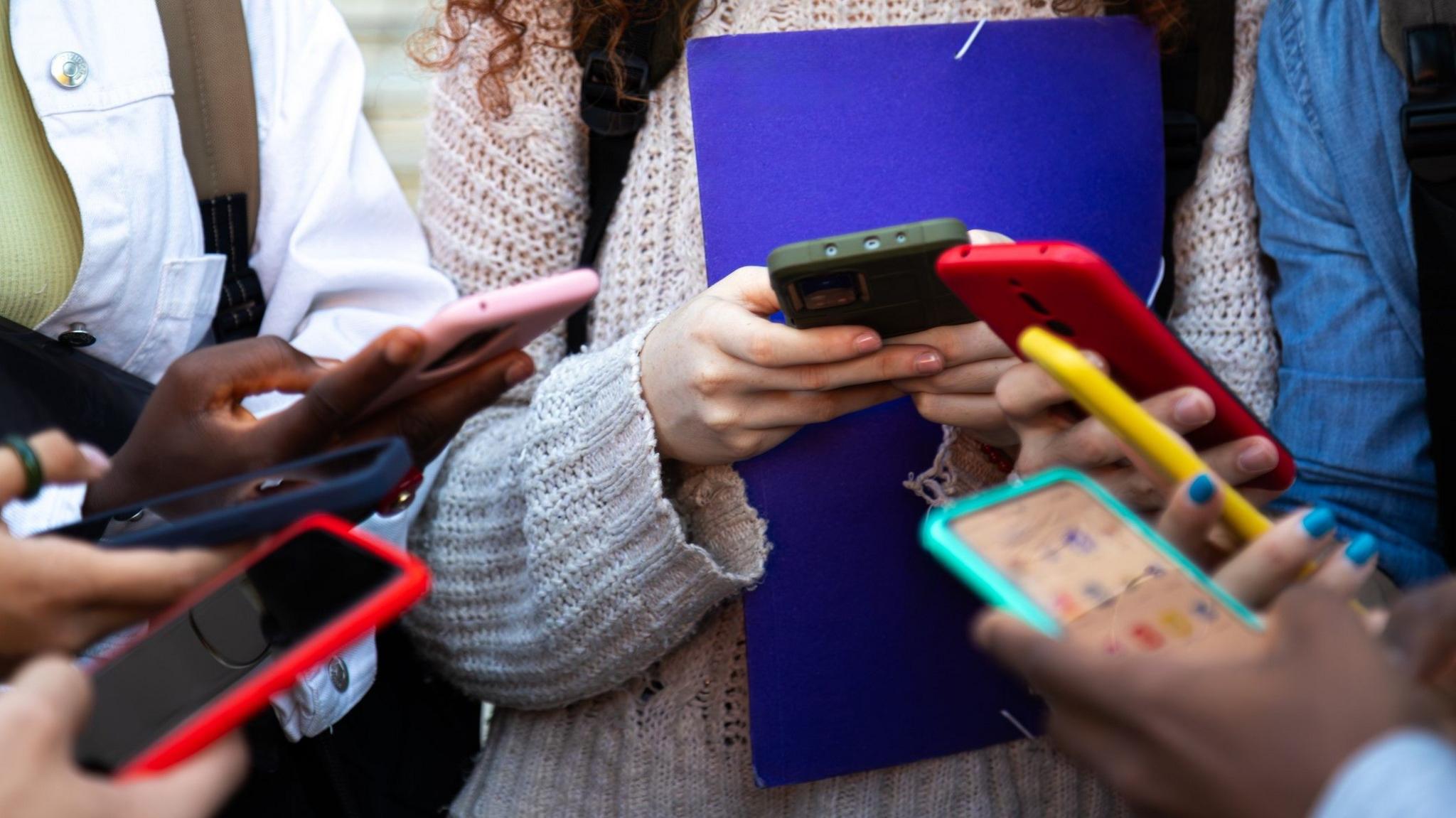The town pushing to delay smartphones for children

Some secondary schools in Hitchin, such as Hitchin Boys and The Priory, have already announced their plans to join William Ransom Primary School to be ‘phone-free’
- Published
Parents have signed a pledge to delay giving their child a smartphone until the end of Year 9 when most will have turned 14.
William Ransom Primary School, in Hitchin, Hertfordshire, has asked all 25 primaries in the town to join them in requesting that parents do not give their pupils smartphones.
Earlier this year, a group of parents at the school agreed they did not want to give their children smartphones and raised it with head teacher Tony Plunkett, who supported their campaign.
He said: "You don't want to alienate your child, so you inevitably give them access. Hopefully, what we're doing is trying to build that community where more children do not have phones than do."
"It makes it easier for parents to say, 'Actually your friends are not on that, and therefore we don't need to give you access to it'," he explained.
He hopes to have all the town's primary schools signed up to be smartphone-free this school year.
Mr Plunket said: "The benefit is children being children again. They're too young to be stuck on a screen; they need those real-life experiences."

Head teacher Tony Plunkett wants all of Hitchin's schools to join his smartphone pledge.
Like-minded parents have previously united on this issue with Smartphone Free Childhood, external chat groups, founded by Daisy Greenwell, from Suffolk.
It began when she set up a WhatsApp group with another mother to support each other in delaying getting their children smart phones.
She told Politics East: "It then went viral, and thousands of people joined it overnight.
"I can really understand why a parent wants to be in touch with their child and to keep them safe, but, actually, there are other ways of doing that without any of the harms of the internet."
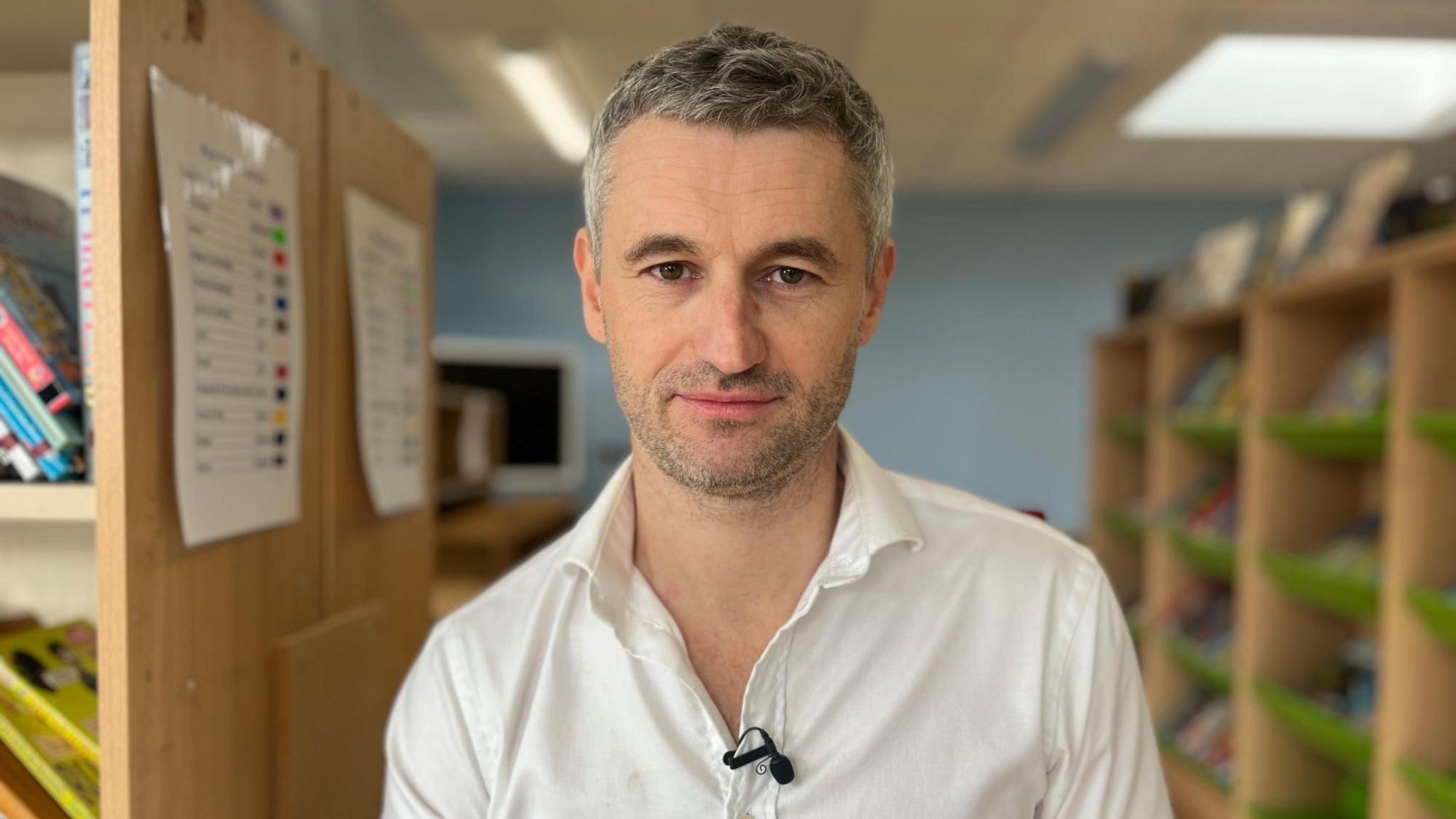
Parent Richard Bowdler was the first to raise the issue with the school
The first parent to bring it up with staff at William Ransom Primary School was Richard Bowdler.
He said: "There was an unspoken consensus that when children went to secondary school they would get smartphones. We thought that wasn’t OK and wanted to change that norm.
"It was slow and tentative at the start; there were just a handful of us in February. But we spoke to the headteacher, Mr Plunkett, and he was very supportive."
Mr Plunkett explained: "We're asking children to use phones when they don't understand the art of conversation yet.
"It results in friendship issues at different levels. What you tend to find from those is that a lot of those originate from simple comments that were either badly worded jokes and a child just got it wrong. Everything steam rolls from there."
A report by Kings College London, external found teenagers with problematic phone usage are twice as likely to have anxiety.
According to Ofcom, external, 84% of bullying in eight to 17-year-olds is via their phone.
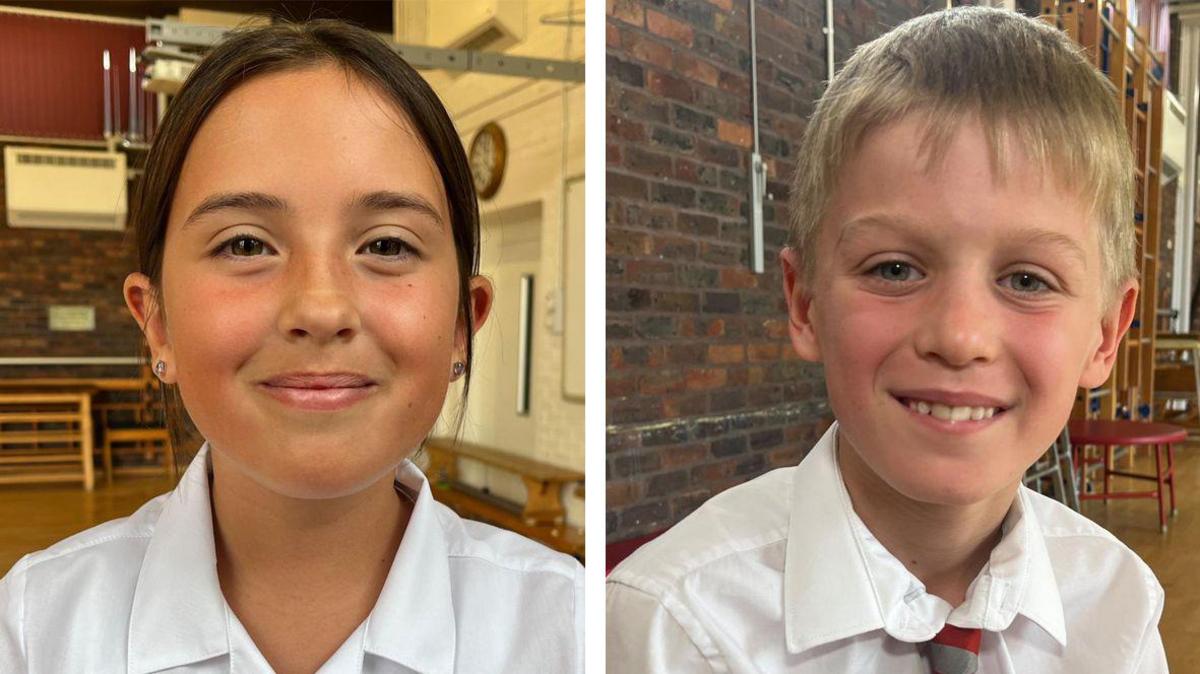
Some children at the school such as Amelie (left) already have a phone, others such as Luke (right) do not
Year 6 student Amelie uses her phone to text her parents so that she can go down to the local shop safely, but she also chats to her friends.
She said: "My dad said he didn’t think it was a good idea for me to have a phone so young, but I like it. As long as we’re not using them too much, I think it’s fine.”
Her classmate Luke does not want a smartphone, he says, because he likes being outside.
He said: “My brother’s 15 and he uses his phone quite a lot. I don’t want to miss out on doing sport because I’m playing games on my phone.”
Parents sign up to ban smartphones in Herts school
Get in touch
Do you have a story suggestion for Beds, Herts & Bucks?
Follow Beds, Herts and Bucks news on BBC Sounds, Facebook, external, Instagram, external and X, external.
Related topics
- Published22 September 2024
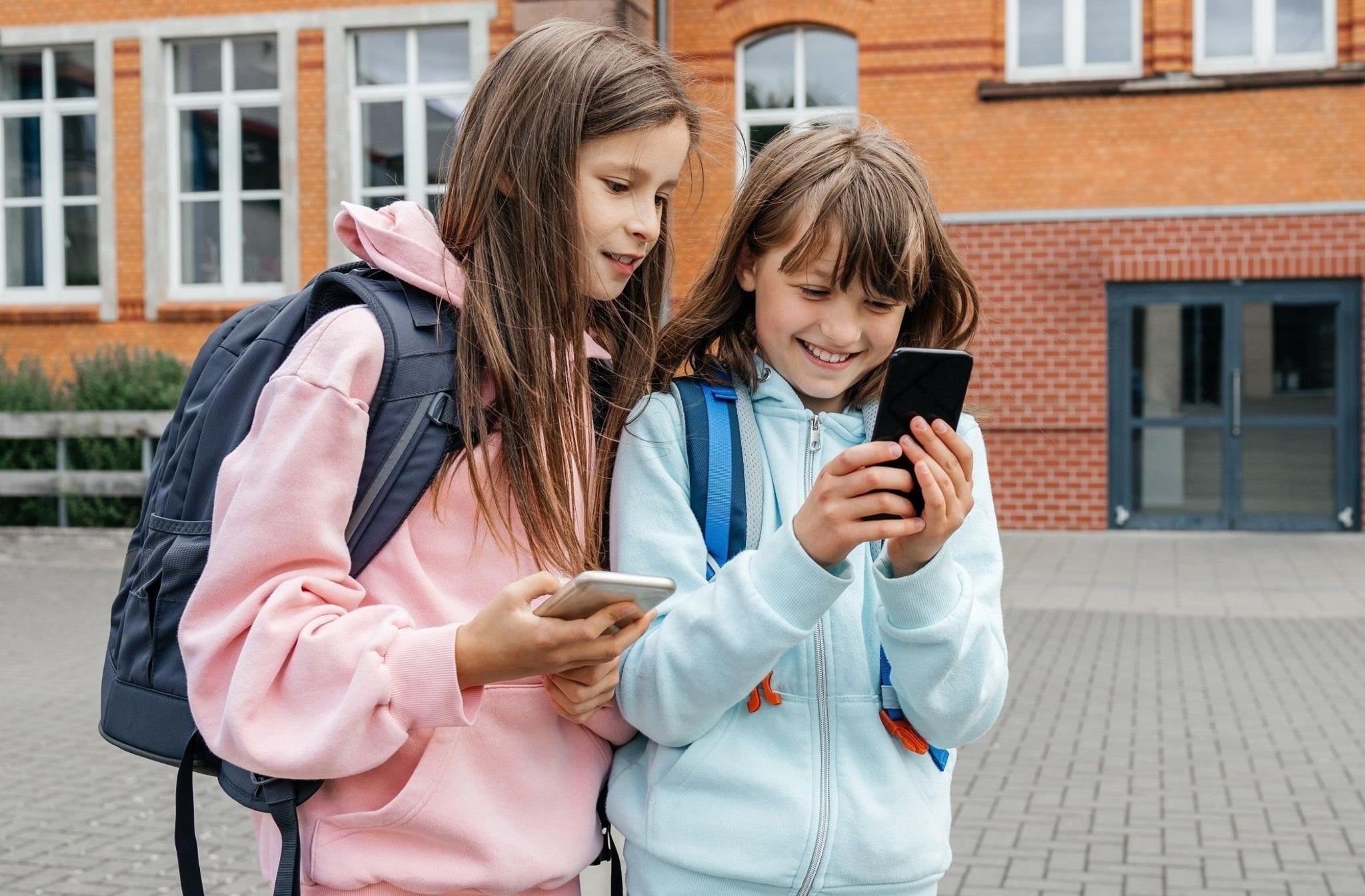
- Published25 August 2024
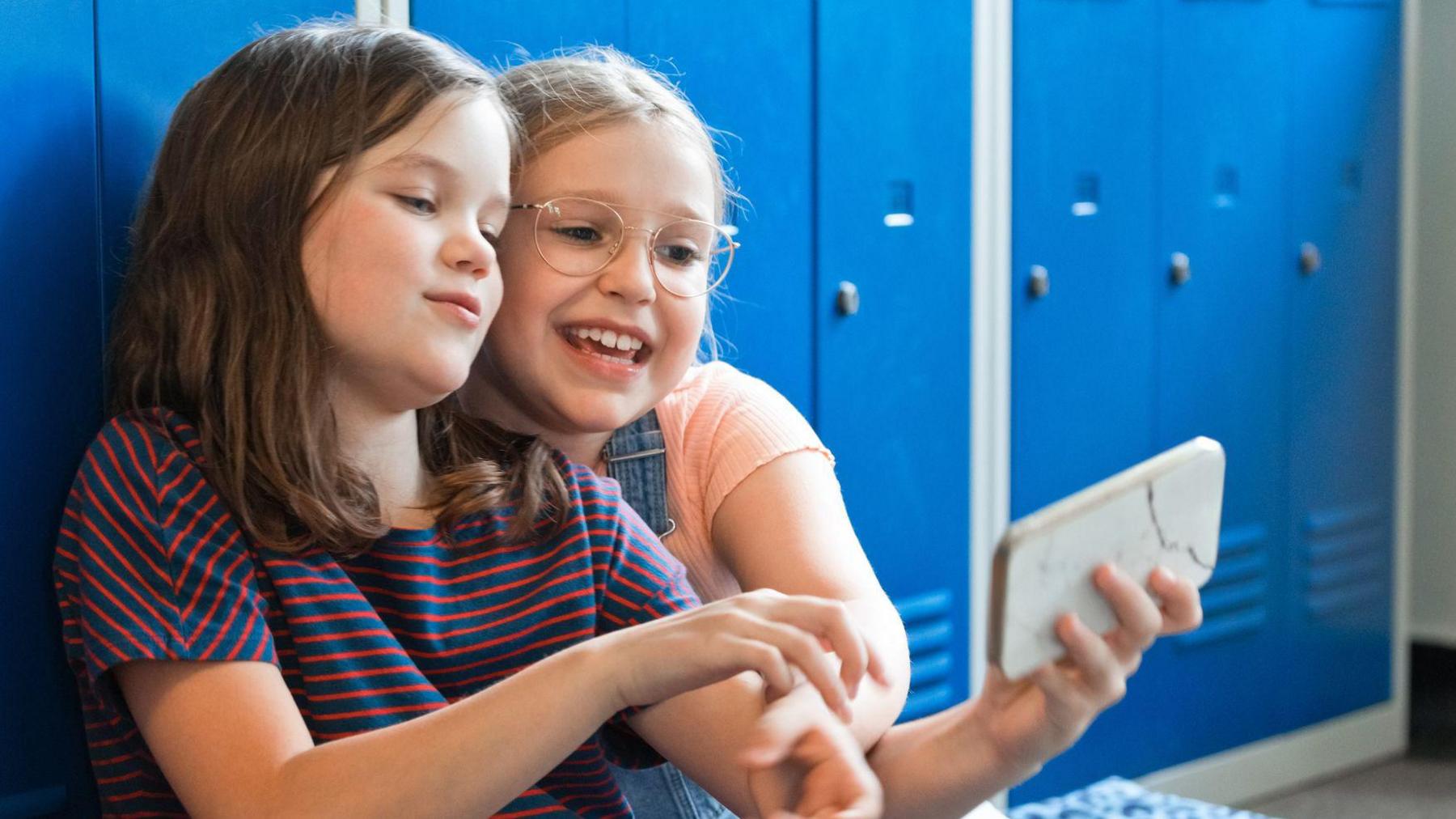
- Published14 September 2024
